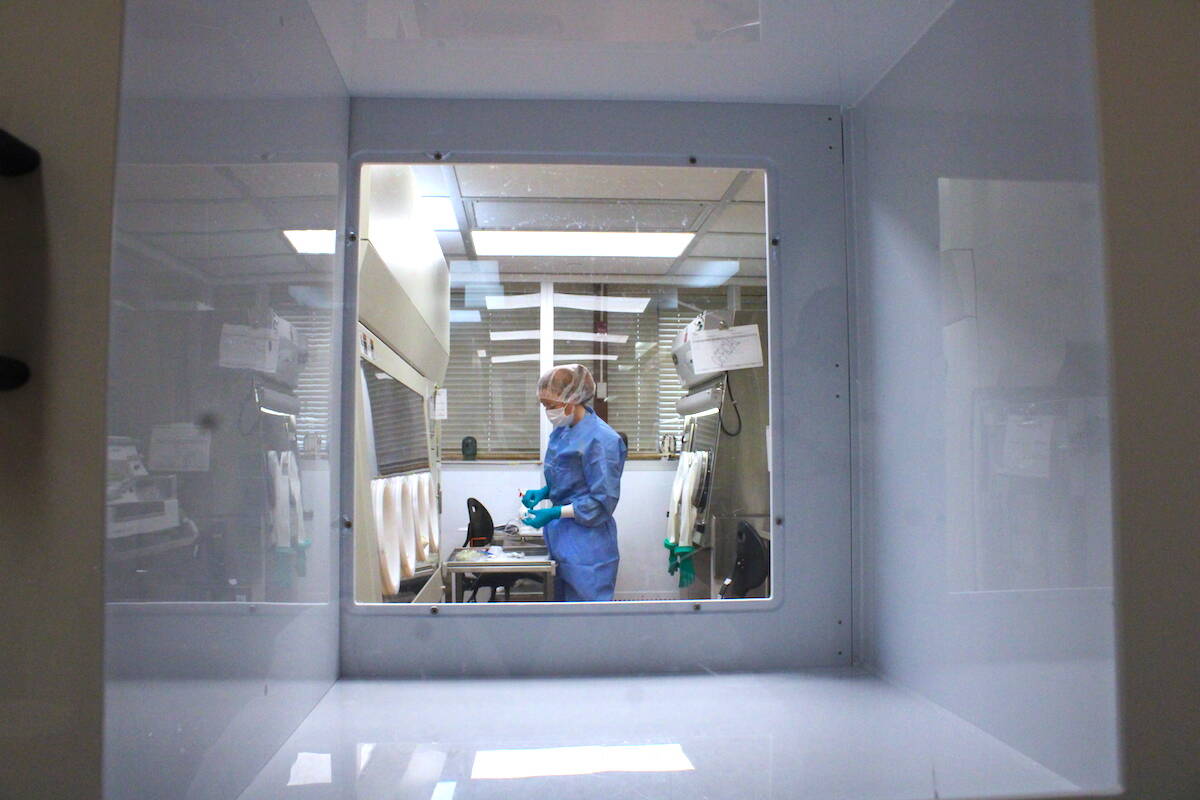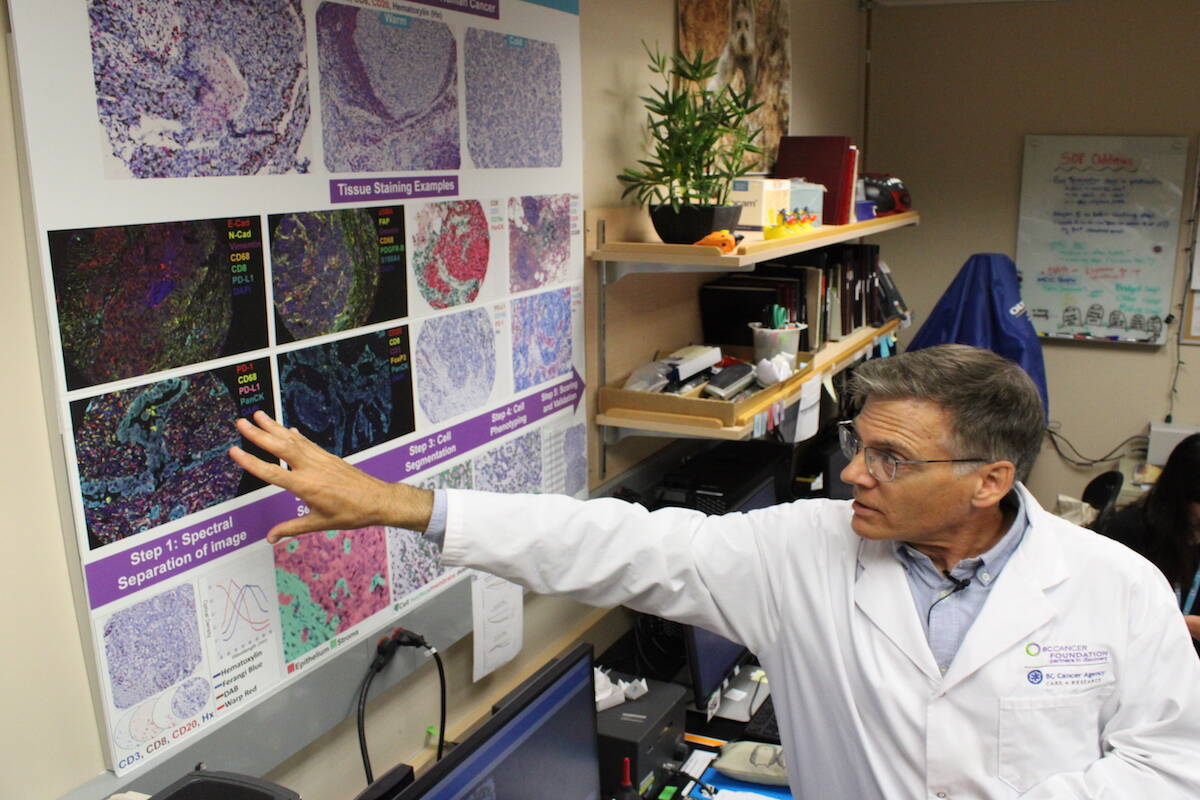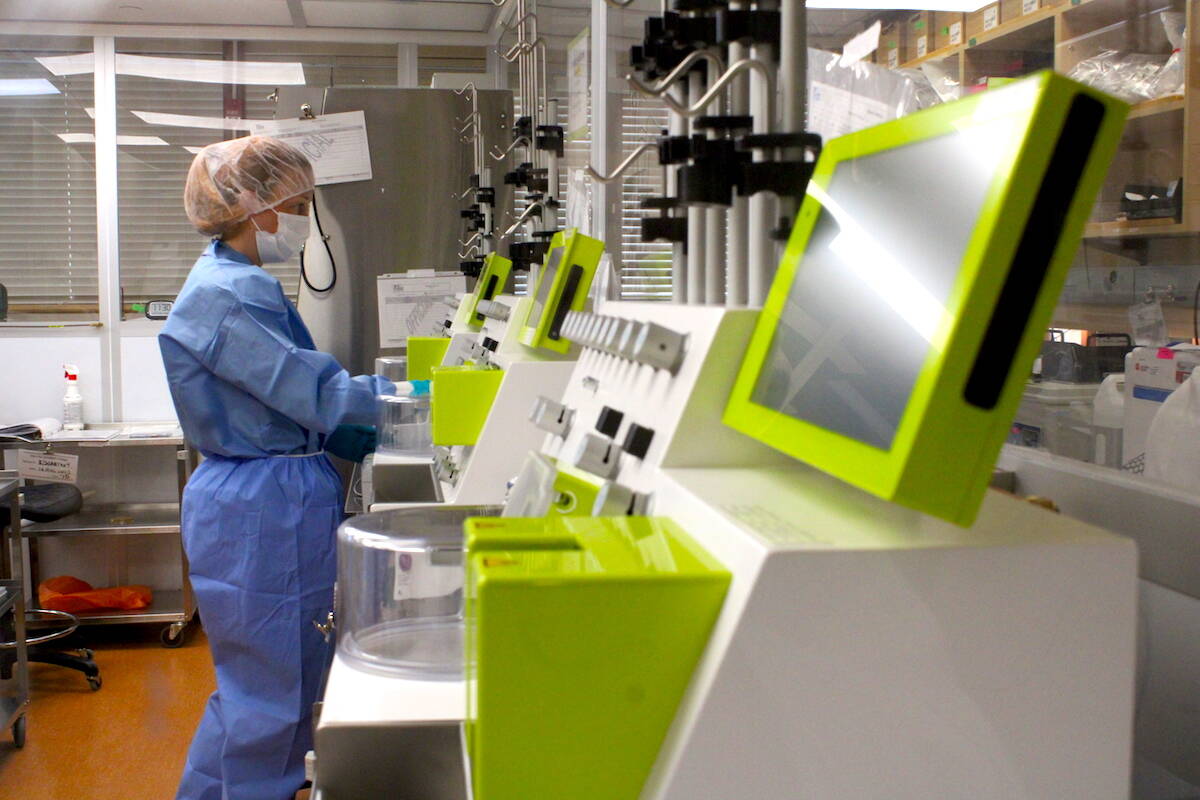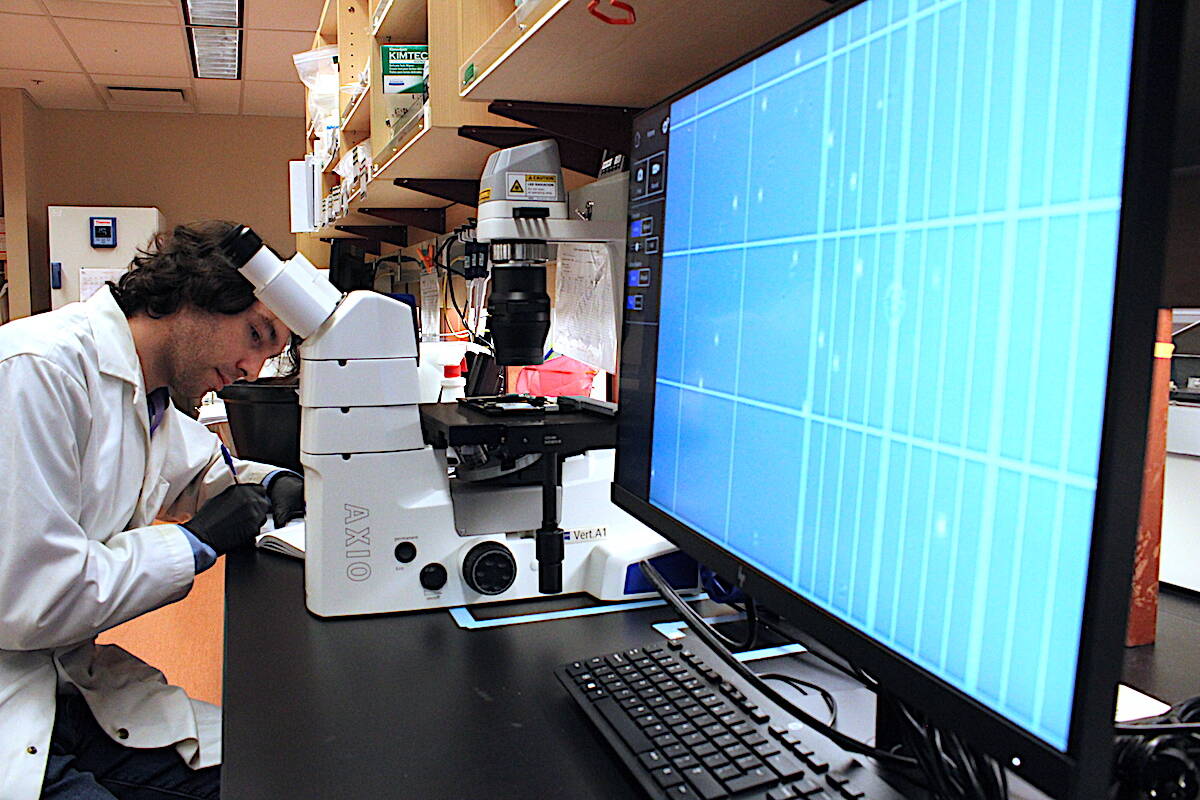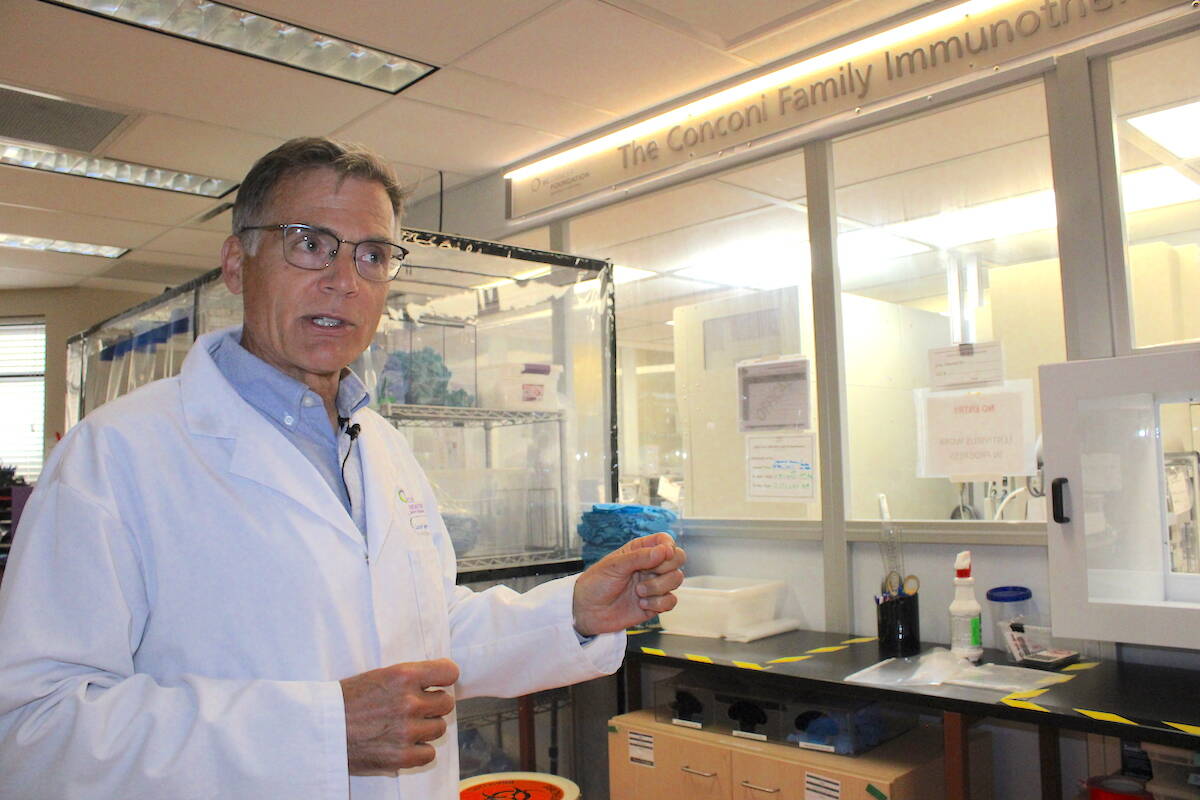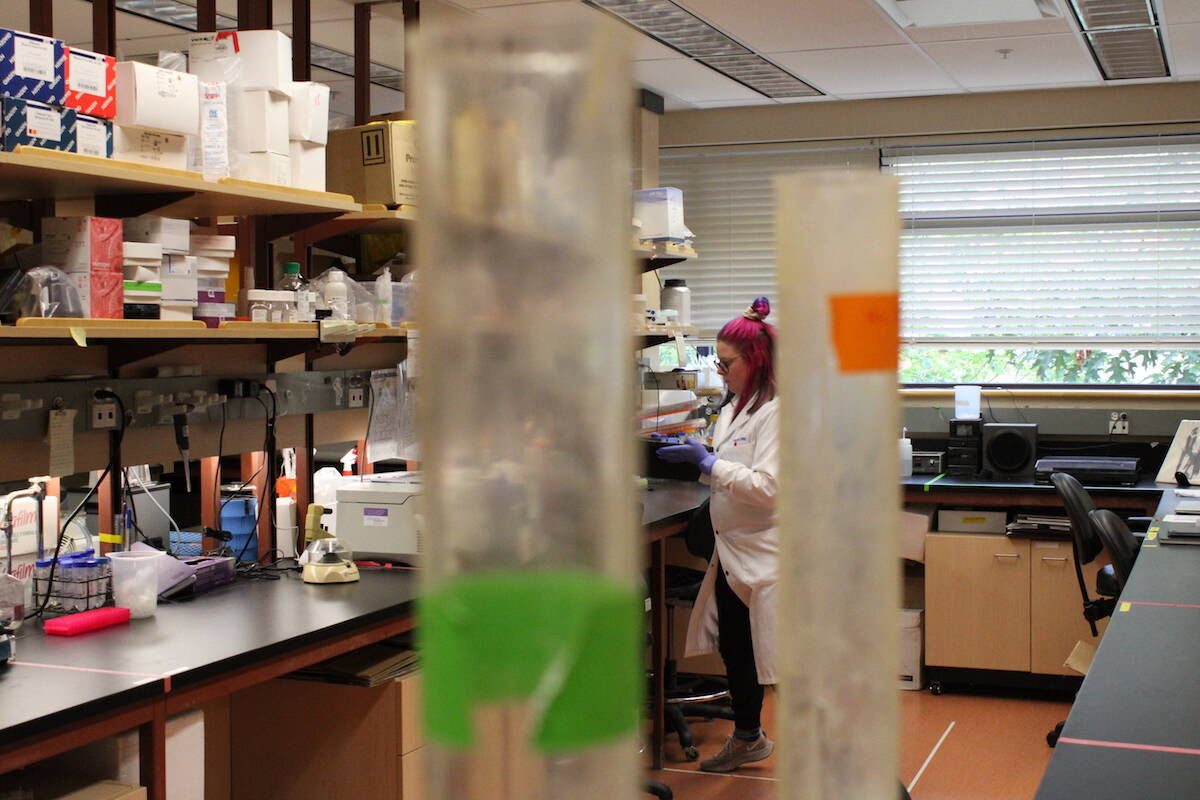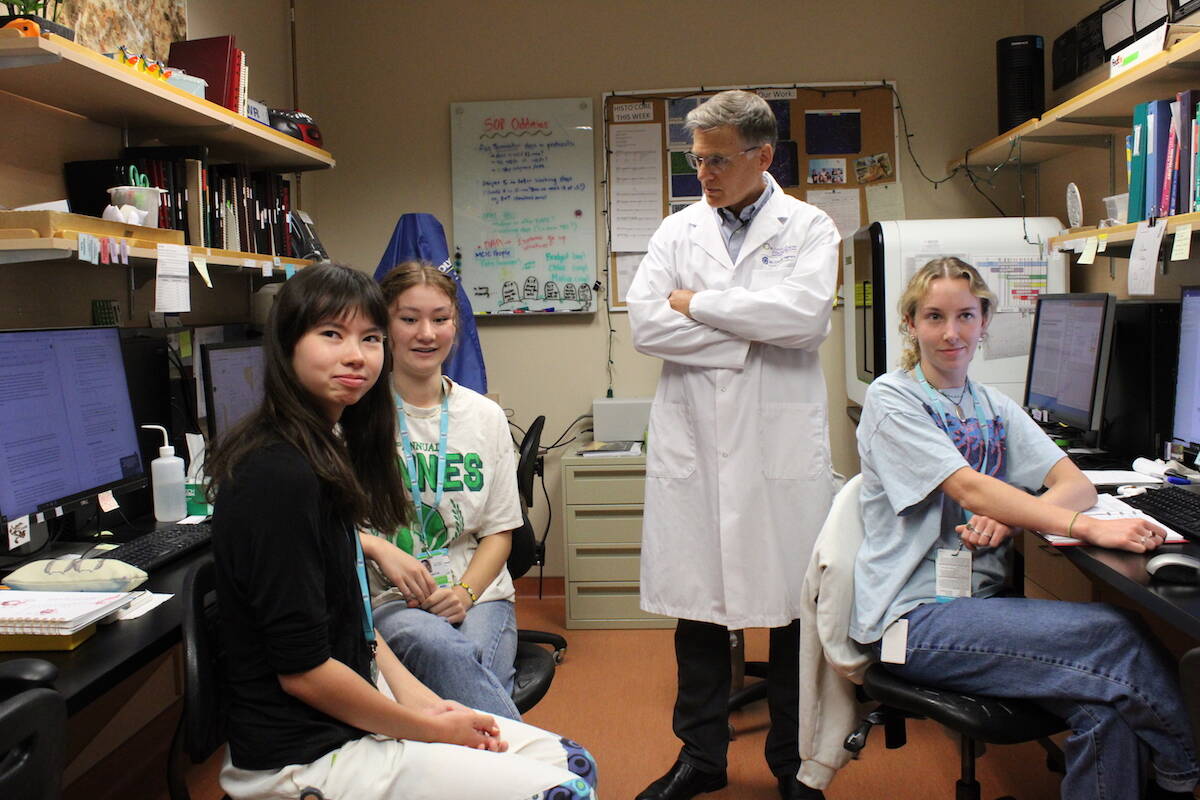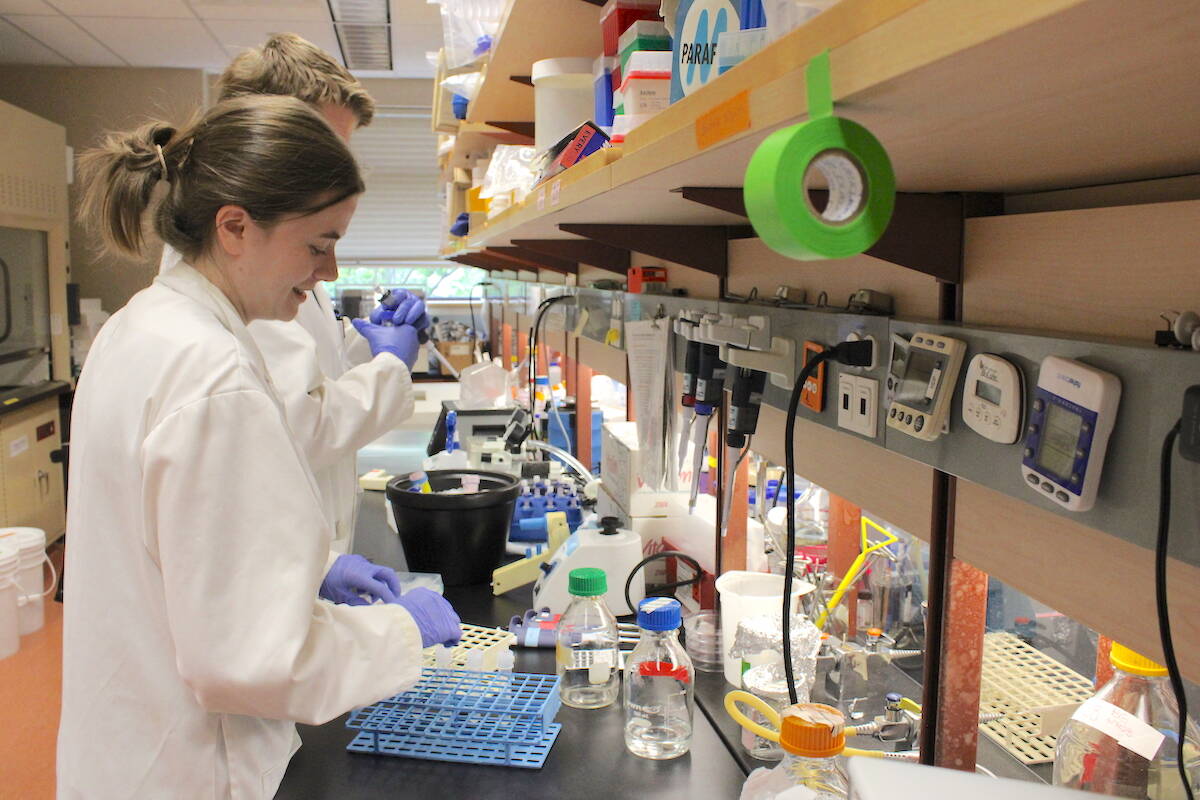A Victoria man had 53 different tumours scattered all over his body, but after just weeks of treatment he not only started to feel better but his tumours started to disappear before he went into complete remission.
Those results, for patients who just two decades ago would have been considered incurable, are thanks to advancements in immunotherapy, according to Dr. Brad Nelson.
He’s the director of the Deeley Research Centre at Victoria’s Royal Jubilee Hospital, which is celebrating 20 years of innovation that’s given hope to those who have no other cancer treatments to turn to. The centre advances various fronts – all centred around harnessing the power of the immune system to find new therapies and treatments for hard-to-cure cancers.
“We’re taking on some of the biggest challenges, the toughest science that humanity faces,” Nelson said while walking through the centre’s various labs on Aug. 23.
“When that immune system kicks in and starts attacking cancer, patients do better and so with immunotherapy what we’re trying to do is just make that happen more often, and stronger.”
The Victoria centre is running a clinical trial on genetically engineered CAR-T cells, which are hardwired to find and destroy cancer. The immunotherapy lab develops the CAR-T cells by introducing genes to T-cells derived from a patient’s blood over a 12-day process. When that’s complete, the millions of new cells provide a supercharged fleet of cancer fighters that is put back into a patient’s bloodstream so they can travel to cancerous sites all over the body.
“A patient might have let’s say a million T-cells fighting their cancer, in this way we can engineer it so they’ve got a billion T-cells fighting,” Nelson said. “If there are more cancer cells than T-cells, you’re going to lose that battle, in this way though, we can really tilt things in favour of the T-cells.”
The treatment has proved phenomenally successful for those with conditions like leukemia and lymphoma and has usually produced fewer side effects. As the trial’s first phase established the treatment’s feasibility and safety, it’s set to grow to around 100 patients from the current 70. A study on an earlier cohort showed fabulous results, Nelson said, with many patients’ cancer completely disappearing after standard treatments weren’t working for them.
“They really needed a new option and because of the support of the community and this work, we’ve been able to provide that,” he said.
Immunotherapy marks the hottest area in cancer research, Nelson said, and in just the last decade it’s had numerous breakthroughs on a wide spectrum of cancers. While the Deeley centre’s work helps spur those solutions, it’s also growing the next generation of researchers taking on cancer.
High schoolers and university students are a fixture at the research lab every summer, and some who were plugging away on Aug. 23 said working at the centre offers a unique shot at being immersed in cancer research.
“I think it’s super exciting,” said UVic co-op student Bridget Mateyko, adding that it’s interesting they get to contribute a small amount to the lab’s histology research. “Being a part of big studies is very interesting.”
Research assistant Breeze Gladwin was also working away in the lab as her team tries to figure out the role of B-cells and how the antibody creators can be leveraged into potential therapies.
“Everyone here is so committed to what we do and everyone here cares so much about the reason why we do it,” she said.
READ: Oak Bay hotel greeter dog loves to ‘post up in the sunshine’
